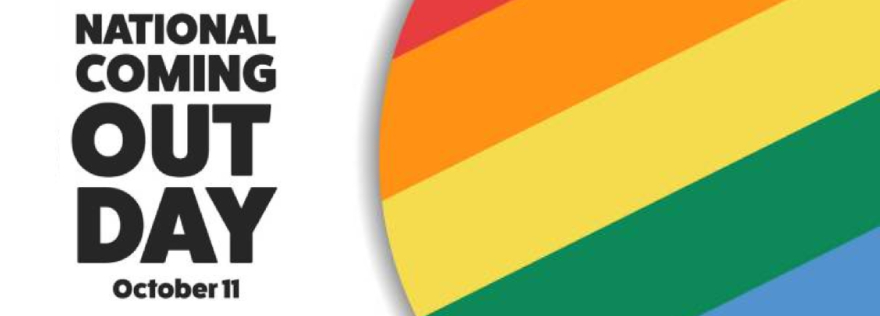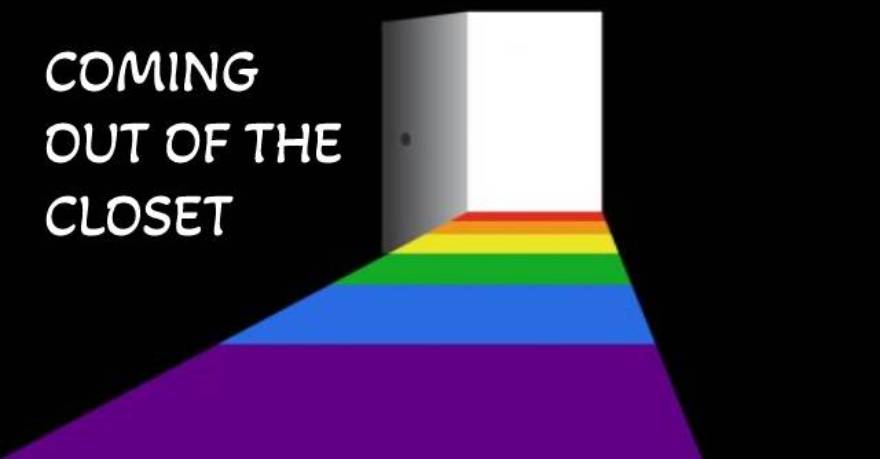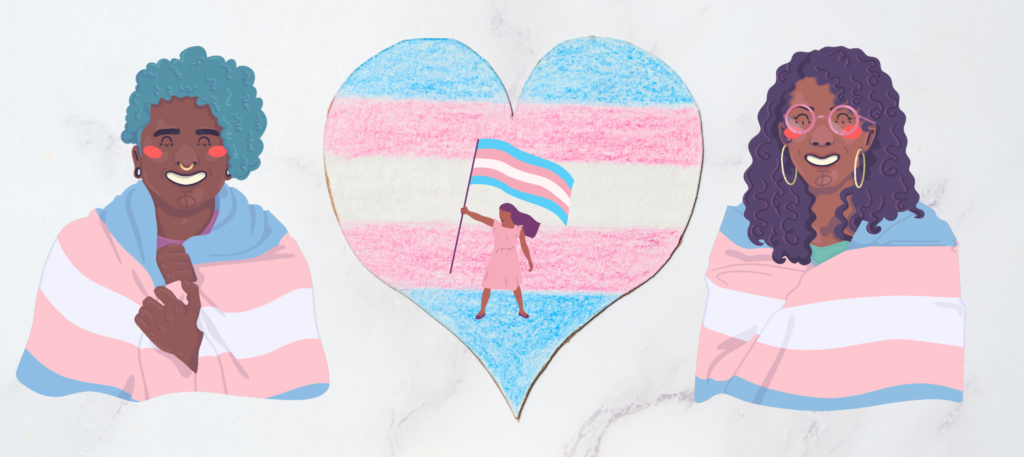Coming out at work isn’t easy!

Each year, the LGBTIQ+ community celebrates Coming Out Day on 11 October. But even though it’s 2021, many people are still deeply closeted. That is, they’ve not acknowledged to themselves, let alone anyone else, that they are LGBTIQ+.
Whilst, on this day we celebrate the joy of ‘coming out’, we must also remember that there are 69 countries where ‘homosexuality’ is still a criminal offence – and there remain six countries where to be ‘homosexual’ is punishable by the death penalty.
The term ‘in the closet’ was first used with reference to the LGBTIQ+ community in the 1960s. It implied that anyone ‘in the closet’ was hiding something. Sometimes it meant that the person had skeletons in the closet. Indeed, they did. And, to carry the metaphor further, ‘in the closet’ was a dark place to be.
The term ‘coming out of the closet’ means that the person has decided to reveal to themselves who they have always been and are now ready to tell others.
In recent years, the term has been reduced to ‘coming out’.
It means the person is coming out to broader society or to a broader group of people, but it may not mean that they are ‘out and proud’ in all aspects of their lives. And whilst people will often refer to the date when they first came out, the process of coming out is a lifetime thing. We come out almost every day of our lives, to someone.
But some people remain partially closeted – perhaps they’re out to family members or close friends but aren’t out at work. Or they’re out to family and their sporting club colleagues but not at work.
Not everyone is comfortable about coming out at work. For example, non-binary people, people who are trans, gender diverse or gender fluid may feel they’re unable to wear attire to work that represents their genuine gender expression. That means they can’t bring their inner selves to work – and that results in lower productivity.
Many fear the consequences of coming out at work and will calculate the risks compared with the rewards, and make a decision about whether to come out at work or not.
If the risks are too great, compared with the benefits, they’ll stay in the closet at work. And that means they may become increasingly disengaged from both work tasks and their work colleagues.
Here are some things they may fear:
- being physically or emotionally attacked, or
- being harassed or joked about in a derogatory way, or
- being put aside for career opportunities, or
- being side-lined in lunchroom or team conversations, or
- having their relationships with co-workers adversely affected, or
- having their private lives pried into, more than other colleagues
- being seen as over-sensitive, or not being believed, if they make a complaint about homophobic, transphobic or biphobic comments or behaviour.
Often, if people find it difficult to come out at work, it says more about the workplace culture than it does about the person concerned. If people don’t feel safe to come out at work, they’ll wait until it is safe to come out – or they’ll leave that organisation.

Coming out is different for everyone. There’s no template! So, at work, for example, it may mean coming out to your work team, the executive, the HR department and so on.
That may be too scary for some employees to contemplate – can they genuinely trust everyone else at work to respect their gender identity and sexuality?
Will there be no negative consequences at all – no negative effect on their career? no negative effect on their social inclusion at work? no vilification? no harassment? no discrimination?
A workplace in which its employees feel safe enough to come out is markedly different from a workplace that’s not safe. The impact on the mental health of a person who is closeted at work is immense.
But the impact on the organisation is also significant: it means that not everyone who works there can be their authentic selves, that they can’t join in the social banter that everyone else enjoys, that they can’t have the input into the operations of the workplace they’d like because they must spend time and energy – every single day – to ensure they don’t accidentally out themselves.
And all of that results in reduced productivity – and potentially greater turnover of staff and a reputation of not being an employer who looks after all their employees.
And, by the way, it’s not ok to ‘out’ someone – i.e. to expose them as LGBTIQ+ simply on the basis of rumours or assumptions. To do so means you’re only adding to those assumptions and rumours, which can be highly dangerous for some people. The only person who can ‘out’ somebody is the person themselves. And, if they never do, that’s completely fine, also. It’s totally none of our business.
It’s important to remember that some closeted people:
- May or may not be out in some or all aspects of their lives
- May or may not be involved publicly with LGBTIQ+ organisations
- May or may not know anyone else who is LGBTIQ+
- May or may not feel welcome or comfortable attending LGBTIQ+ events or using LGBTIQ+ services
- May or may not live as and identify as straight.
The key to making it safer for LGBTIQ+ people to come out at work: LGBTIQA+ inclusion training for workplaces. It’s time for fewer words – and more action. Times have changed – have you?







Responses